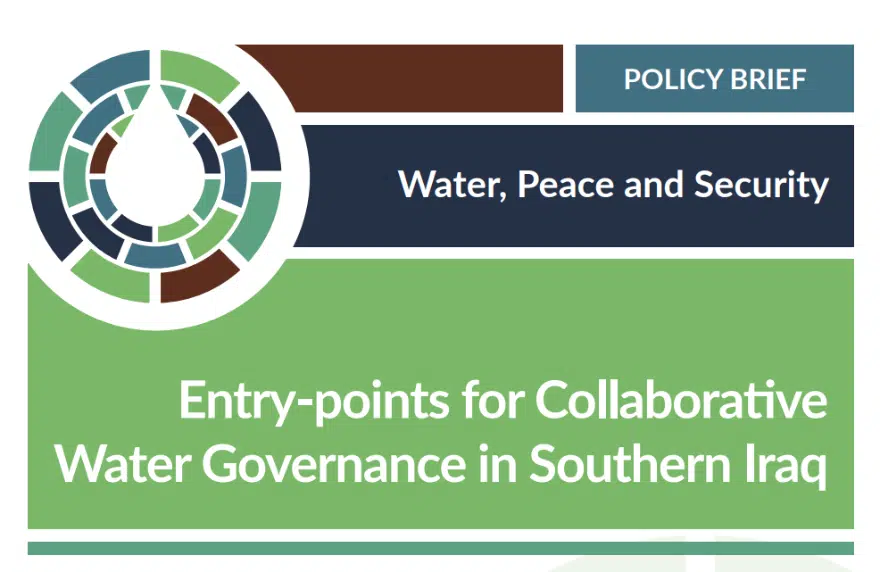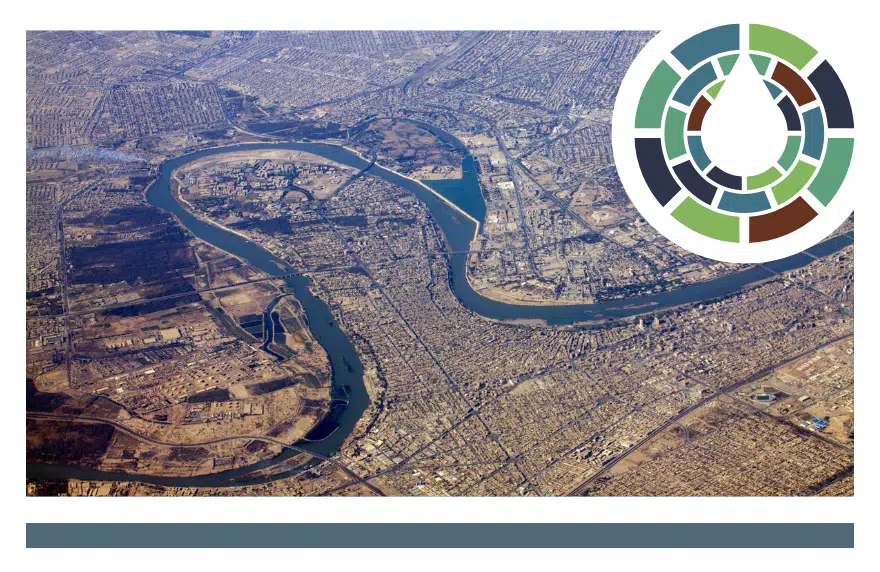Research
Iraq faces an increasingly dire water situation as both the quantity and quality of water continue to decline, impacting the complex dynamics between actors within Iraq’s borders, at the federal, provincial, and local levels. The aim of this paper is to shed light on the link between water and conflict in Iraq at the interprovincial, provincial, and local levels in the provinces Basra, Missan, Dhi Qar, and Wasit in the south of Iraq.
This Water, Peace and Security (WPS) paper analyses three types of conflict that have been identified across Iraq’s provinces:
- conflicts between provincial authorities over water shares or illegal encroachment of water flows.
- conflicts between citizens and provincial authorities, and/or the central government.
- conflicts between local inhabitants over scarce water resources.
In this paper, five key findings emerge, with the first three relating to conflict dynamics and the last two relate to key drivers and mitigators of conflict. This paper’s in-depth analysis shows that to better understand water-conflict dynamics in Iraq, further attention should be given to informal networks, which in Iraq are dominated by tribes. It is evident that formal institutions and informal networks are not dichotomous, creating complex cross-border dynamics that contribute to increased water stress. Addressing these dynamics within Iraq’s borders presents an opportunity for Iraq to improve its water situation and more effectively mitigate water-related conflicts.
Authors: Laura Birkman, Dorith Kool, Eva Struycken
Contributors: Irina Patrahau, Kendra Kock, Rolien Sasse, Susanne Schmeier








